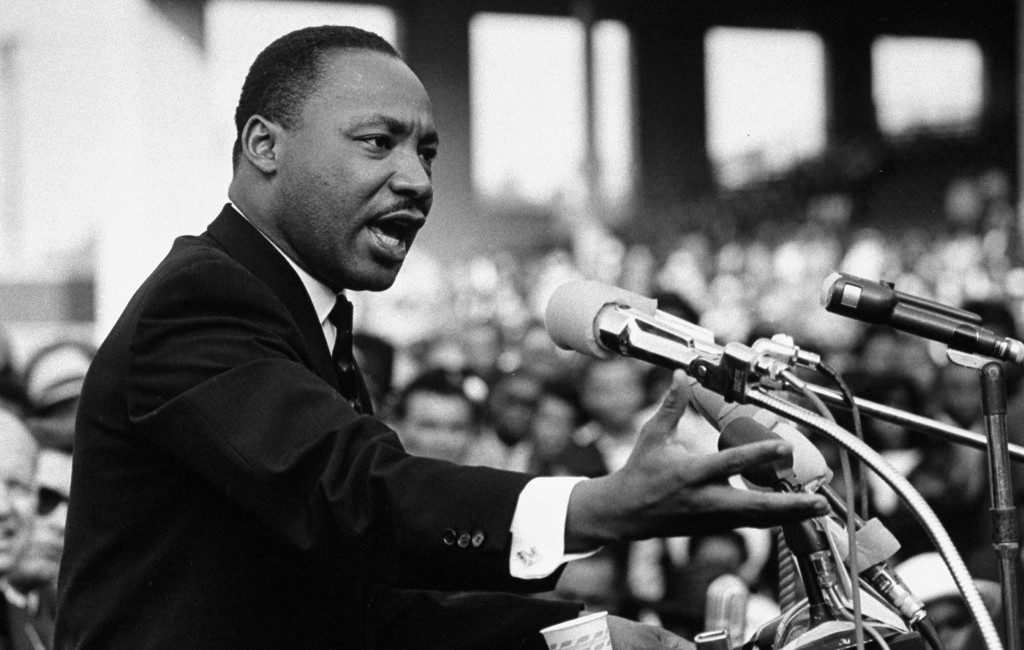
Martin Luther King
Social Activist and Humanitarian, Martins Luther King Jr. is no
doubt one of the most important figures in the American Civil Rights
Movement.
A Baptist minister inspired by other advocates of nonviolence, King
encouraged oppressed and socially disadvantaged African-Americans to
fight for equality through peaceful protest.
He helped to organize the March on Washington, where he delivered
his famous ‘I Have A Dream’ speech, and played a pivotal role in other
significant events such as the Montgomery Bus Boycott.
1. Martins Luther played a key role in the American civil rights movement from the mid-1950s until his assassination in 1968.
2. King’s birth name was Michael, not Martin. The civil rights
leader was born Michael King Jr. on January 15, 1929. In 1934, however,
his father, a pastor at Atlanta’s Ebenezer Baptist Church, travelled to
Germany and became inspired by the Protestant Reformation leader Martin
Luther. As a result, King Sr. changed his own name as well as that of
his 5-year-old son.
3. King entered college at the age of 15. King was such a gifted
student that he skipped grades nine and 12 before enrolling in 1944 at
Morehouse College, the alma mater of his father and maternal
grandfather.
4. After earning a divinity degree from Pennsylvania’s Crozer
Theological Seminary, King attended graduate school at Boston
University, where he received his Ph.D. degree in 1955.
5. Martin Luther King Jr. won the Nobel Peace Prize in 1964 at the
age of 35. This made him the youngest male recipient of the prestigious
award. He donated the entire prize of $54,123 (now equivalent to
$400,000) to the civil rights movement. Martin won dozens more awards
for his work including the Medal of Freedom, Congressional Gold Medal,
and a Grammy. The Grammy was for Best Spoken Word Album, awarded in 1971
for King’s “Why I Oppose the War in Vietnam.”
6. Martin Luther King Jr. was targeted by the FBI for being “the
most dangerous Negro of the future in this nation from the standpoint of
communism, the Negro, and national security.” Records of Martin taken
by the FBI are held in the National Achieve but remain sealed from
public access until 2027.
7. Before his assassination, there were other attempt. On September
20, 1958, King was in Harlem signing copies of his new book, stride
toward freedom, at a local department store, Blumstein’s. A woman named
Izola Ware Curry approached him, asking if he was Martin Luther King.
When he replied yes, she said ‘I’ve been looking for you for five
years,’ and stuck a letter opener into his chest. The blade came close
to penetrating his heart, nestled just along the side of his aorta.
After several hours of surgery, King emerged alive; doctors later told
him that ‘just one sneeze could have punctured the aorta’ and killed
him. King later issued a statement that he felt no anger or ill will
toward the woman.
8. On the night before his assassination, MLK came to Memphis to
give a speech in support of the city’s African-American garbage workers.
At Mason Temple Church, he told the crowd, ‘Like anybody, I would like
to live a long life. Longevity has its place. But I’m not concerned
about that now… I’ve seen the Promised Land. I may not get there with
you. But I want you to know tonight, that we, as a people, will get to
the Promised Land. And I’m happy tonight. I’m not worried about
anything. I’m not fearing any man. Mine eyes have seen the glory of the
coming of the Lord.’
9. King’s “I Have a Dream” speech was not his first at the Lincoln
Memorial. Six years before his iconic oration at the March on
Washington, King was among the civil rights leaders who spoke in the
shadow of the Great Emancipator during the Prayer Pilgrimage for Freedom
on May 17, 1957. Before a crowd estimated at between 15,000 and 30,000,
King delivered his first national address on the topic of voting
rights. His speech, in which he urged America to “give us the ballot,”
drew strong reviews and positioned him at the forefront of the civil
rights leadership.
10. King was imprisoned nearly 30 times. According to the King
Center, the civil rights leader went to jail 29 times. He was arrested
for acts of civil disobedience and on trumped-up charges, such as when
he was jailed in Montgomery, Alabama, in 1956 for driving 30 miles per
hour in a 25-mile-per-hour zone.
***
Source: Daily Sun
No comments:
Post a Comment